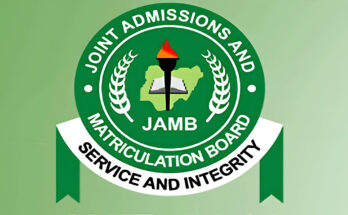The Nigerian government has asked the Academic Staff Union of Universities (ASUU) to withdraw the strike threat, saying it’s working out modalities to reconstitute the governing councils of universities.
The acting Executive Secretary of the National Universities Commission, Chris Maiyaki, who made the appeal on Wednesday said the the Minister of Education, Prof Tahir Mamman, had put in place a panel to work on the list.
According to the NUC boss, the councils would be inaugurated once the list was consummated.
Maiyaki, during a media parley with education reporters in Abuja to give details of the ministry’s effort, said: “To reconstitute the councils of 61 universities is not a small feat. Government is working to ensure that people that are qualified and have the right pedigree are put in those councils.”
He admitted that the absence of governing councils for public universities was slowing down the administration of the universities.
He appealed to the leadership of ASUU to be patient with the government during the period.
Commenting on concerns from some quarters about the proliferation of universities in the country, the NUC boss said the commission is committed to expanding access to higher education.
“The current number of 272 universities in the NUS is not sufficient to accommodate the ever-growing demand for university education by Nigerian youths. Each year, Nigerian universities receive millions of entries for admissions, therefore, there is a need for Nigeria to continue to increase access by establishing more universities to meet the demand for quality education in the country,” he said.
On the initiatives put in place by NUC to boost the nation’s university system, Maiyaki said the commission has identified strategic priorities that encompass curriculum development, quality assurance, research and innovation, infrastructure development, and internationalisation, among others.
“To encourage partnerships with industry and promote blended learning, the NUC carried out an extensive review of university curricula from the Benchmark Minimum Academic Standard (BMAS) to the Core Curriculum Minimum Academic Standards (CCMAS), which reflects the aspirations of Nigeria to attain a knowledge economy, driven by the 4 Industrial Revolution (4IR) and 21st-century skills. The CCMAS features an expansion of academic disciplines from 14 to 17,” he told participants at the briefing.
Recall that ASUU held a media briefing at its headquarters in Abuja to lament the failed promises from the Tinubu-led administration, citing the unnecessary delays in constituting the governing councils of universities.
It had also complained of the dearth of academic staff across the country, owing mostly to the government’s economic policies.



